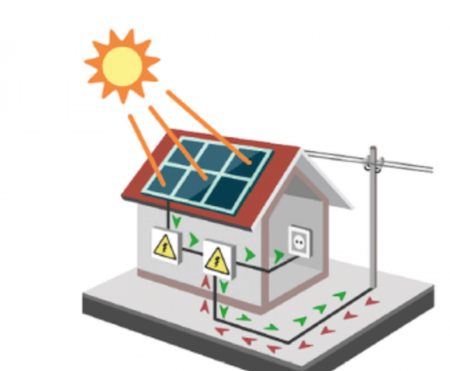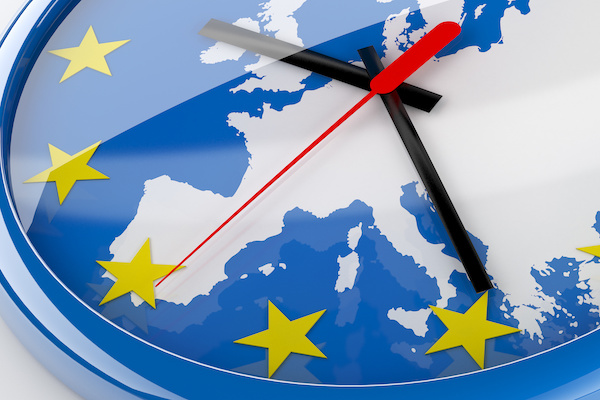09 November 2017
Self-consumption: evolution or society revolution, it is above all a question of anticipation!


Since September 12th, the Regulatory Commission of Energy (CRE, the French national regulatory authority) has initiated a consultation cycle dedicated to electricity self-consumption. Following several meetings and workshops, CRE published, on the website autoconsommation.cre.fr , a first call for contribution on this same topic. This topic, at the centre of UFE’s strategic priorities, gathers producers and network system operators, as it is crucial for all of them to anticipate the impact of those evolutions on the ways to consume and produce electricity.
What if electricity self-consumption was the social phenomenon of the next decades? The question is far from being anecdotal. Today, more and more French citizens express their interest for individual self-consumption, and even opt for it. Collective self-consumption projects are emerging. A trend, going further than personal convictions, that lies also on the anticipation of an increase in electricity retail prices and a joint price decrease of decentralised generation means (mostly solar panels). The scope of the deployment of those new approaches will be key, as it brings about fundamental questions in terms of electric system functioning, different actors’ responsibility and also requires an overall assessment, in particular economically, from the society point of view.
Avoid inequalities between consumers
Thus, when key evolutions such as self-consumption are emerging, it is important to apprehend them in the light of the broader context. Today, networks and electricity suppliers bring several services to consumers: they ensure electricity delivery but also guarantees to provide the contracted electric power at any time or the short-circuit power. However, many billing elements remain based solely on the energy extracted from the network. This is the case not only for network tariffs but also for fiscal policy (and mainly the contribution to the electricity public service – CSPE). The emergence of new ways to consume makes it necessary to question again the construction of economic signals, transmitted by the electric system, in order to avoid treatment inequalities between different types of consumers (individual self-consumers, collective self-consumers or regular electricity end-consumers). UFE regularly draws the attention of public authorities to this key issue.
A CRE initiative that could not be more timely
The debate initiated by the CRE aims to question several key elements for individual and collective self-consumption. UFE welcomes this initiative and its large scope, which is necessary to elaborate an appropriate framework for the development of self-consumption. According to UFE, it is essential to bring a legislative and regulatory framework that is both robust and stable in the long-term. This will avoid any retroactive changes, which are harmful to investments and slow down the development of new solutions and industrial sectors, therefore also slowing down job creation.
Following the five workshops that the CRE dedicated on that topic (network tariffs for individual and collective self-consumption; technical and contractual framework for individual and collective self-consumption’s operations; framework for the development of electricity supply offers to accompany the development of self-consumption; support schemes), the regulatory authority launched a first call for contribution on the tariff component. Two other calls will follow, respectively on contractual frameworks and support schemes. Contributions and answers will be published on the aforementioned CRE website dedicated to self-consumption. The entire profession gathered within UFE is thus strongly mobilised to participate, given the global and horizontal vision of the sector it represents. As representative of the whole value chain of the electricity sector,, UFE endeavours to bring the vision on the evolution and the functioning of the electricity sector thanks to its expertise and its members’.
Key principles to respect for building a new framework
Thus, for UFE, 5 key principles have to be integrated from now on: durability, freedom, responsibility, equity and transparency.
The durability of the self-consumption framework will be even more ensured if it relies on the principle of consumers’ freedom of choice regarding their consumption pattern. This requires in parallel that everyone bears the consequent responsibility that stems from such freedom, by accepting the fair repartition of cost and benefits depending on the consumption choices made.
Equity implies both an evolution of fiscal policy in order to avoid any distortions of the economic signals sent by the electric system, and an evolution of network tariffs methodology in order to better reflect the costs.
Lastly, the possible support schemes implemented by public authorities should be transparent in order to be adequately monitored. These support schemes should be carefully framed to guarantee a fair remuneration of projects and be readjusted in order to take into account the real evolutions of the different cost items of projects.
Thus, if self-consumption is an emerging trend for the French consumers, it is important to define as of now its framework, based on clear principles to guarantee its rise, in an approach reconciling consumers’ freedom and collective interest.
Find out more
02 June 2020
“Long live Europe”: it’s time for Europe!
25 February 2020
Brexit: love last 47 years


About us
The Union of the French Electricity Industry is the trade association of the French electricity sector. We bring together companies from the whole value chain of the electricity industry.
Find out more










